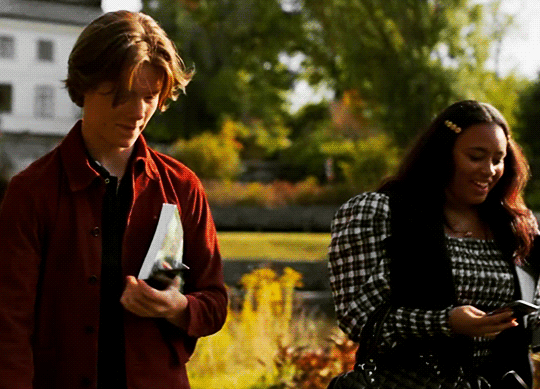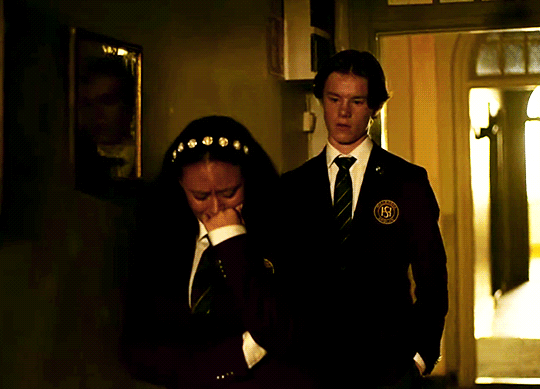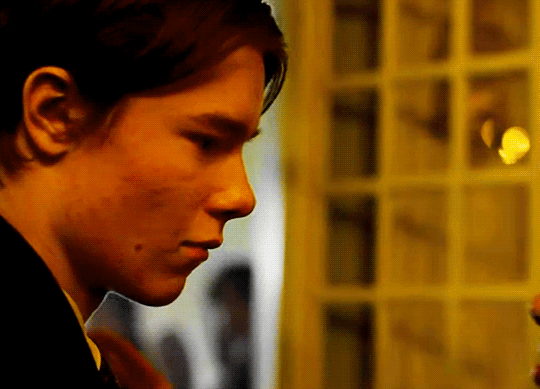#especially since it has been shown that felice cares very deeply about her friends
Photo





building a friendship: prince wilhelm + felice
#the friendship may have started has an unrequited crush but i hope to see it grow for wilhelm's sake#especially since it has been shown that felice cares very deeply about her friends#prince wilhelm#felice#young royals#youngroyalsedit#tusersunflower#tuserjackie#tuseranya#uservera#tuserhidden#usertutu#antedits
656 notes
·
View notes
Text
Reader, Come Home - a review
I recently took to Goodreads with something of a rant about a book I just finished called - Reader, Come Home - by Maryanne Wolf.
I do not recommend this book.
I actually disliked it so much in fact – thought it was so biased and self-righteously written – that I was driven to create a special “not-recommended” tab for my bookshelf on Goodreads.
I try to give authors a lot of room. I am trying to write myself - as you knowing coming to this website - and I know how difficult and personal it is. But this book is something else. Something that deserves to not be read. Something that deserves to go away.
As of today, I’ve read 90 book so far in 2019. There are 216 total books on my Goodreads profile listed as read or currently reading. Of all of these books, I’ve only deemed 6 to be “not-recommended.” That means that after going over all the books I’ve read since 2014 when I started keeping track, I could only come up with six that really had no redeeming value.
Let me put this into more perspective: I didn’t even include Left Behind on this list. That is a truly terrible book – it is terribly written, has terrible plotting and characterization, and utilizes and promotes terrible theology. It is the book I use to make fun of bad books. In fact, I think a lot of it is bad for a person to read because of both the dread and the self-righteousness it inspires in its target market, the “true believers” of the Evangelical far right.
All of that said, that book did give me an insight into a former friend I grew up with, and without it, I would have far less empathy (and actual sympathy) for people of this persuasion. So even Left Behind has its merits in the right context, and isn’t on this list. That’s saying something.
I dislike Reader, Come Home that much.
I’m going to start my actual review with “letter four” (her book is divided up into eight ‘letters’ she is writing to ‘dear reader’) from the middle of this book. Letter four is truly, deeply bad. This author’s elitism cannot be excused. It all started earlier as she constantly addresses the reader with “we, the expert readers” know/believe/trust/expect/etc. I understand ingratiating yourself with your audience, but this author’s judgmental tone was a lot to take, especially when it came over and over again in quick progression.
She presents the fact that people – on average – now read about 100k words a day. Let that sink in. That’s a good-sized novel a day! That number is way up, she says, and is in fact more than people have ever read before. But she also argues that it is a bad thing because all of that readings doesn’t come in huge, dense passages that you have to spend hours decoding. She doesn’t concede the fact that your average person has never read that way from today through time in memoriam. The very fact that people are reading that much means that people are more literate than ever, even if it isn’t deep reading. There are stats out there today that say that the average person consumes more information on a single day than an educated person from the middle ages consumed in a year. It is such a culturally biased idea to think that the average person, who is indeed reading more than at any time in history, is going to be worse because the top 1% of readers might be reading somewhat less complicated materials. She has no idea what an average reader is, clearly, as she panders to her “expert readers.”
She does (what she herself calls) an unscientific study of three best-selling novels from today, and three from a century ago – all of which are on her bookshelf at home. She says she doesn’t know about how to evaluate them, and shouldn’t draw conclusions, and then after skimming them draws the conclusion that new novels have shorter sentences and less hard-to-understand thoughts and phrases, and that is bad. She also neglects to say anything about what “best seller” constitutes sales- and readership-wise, and who could read/afford books in those disparate time periods. Once again, she is only considering the very most literate of people from 100 years ago, and comparing them to your average reader today.
Here is a passage from the book that she believes exemplifies good writing:
“Italo Calvino wrote about this a single, unalterable sentence: ‘For the prose writer, success consists in felicity of verbal expression, which every so often may result from a quick flash of inspiration, but as a rule involves a patient search for the mos juste for the sentence in which every word is unalterable, the most effective marriage of sound and concepts, concise, concentrated, and memorable.’”
Let’s be clear on something here: this sentence isn’t concise. It isn’t concentrated. It isn’t memorable. It is written in such a way as to be dense for denseness’s sake. It actually disproves her point about “good” writing and in fact exemplifies some of the problems with older writing in the minds of the modern reader: it is dry, boring, and purposefully confusing.
She has a long passage where she talks about her (former) favorite novel – a dry, byzantine Pulitzer prize winner from decades ago, where long passages are nothing more than meditations of monks as they continually ascend and descend stairs. She chastises herself for not liking it – not being able to read it in fact – in a (once again unscientific and yet conclusion-rich) study of her own making decades after she read it for the first time. She said she didn’t have the patience for it because of all the screen reading she does. Well, maybe. But maybe it was also a favorite book because of the prestige it held at the time for a student trying to get a terminal degree and justify her reading to herself. Also: reading tastes change with the times and some things don’t age well. But it was her fault for no longer having the patience… to me, this whole pursuit seemed distasteful as well as elitist.
She seems to be trying to grapple with her own elitism in the following passage:
‘Some of you, no doubt, will think that I protest too much, and that only the elite parts of any population will miss the shelves of older books and poems that pass out of favor with clockwork regularity age after age, generation after generation. But it the very opposite of elitism that propels my worries. I write this book and conduct my research today only because of the dedication of my parents and of a few deeply committed teachers from The School Sisters of Notre Dame in a two room eight grade school house gave me a reason as a child to read the great literature of the past. Only those books prepared me not to leave the coal miners and farmers in my tiny Midwestern town, but to understand each of those still dear people, and the world outside of El Dorado, Illinois in whole new ways.’
First off, you were right, only the elite parts of society will care. Full stop. Second, if you have to point out you are not elitist and do so by saying you’re the very opposite, I would suggest you go back and really think about your motives, because more often than not, the lady *doth* protest too much. You cite your non-elitism by talking about a small school presumably with a low teacher to student ratio, dedicated teachers, literate parents (who were professionals), and the expectation of leaving everything behind for a better life in a better place. You say that only by reading were you able to understand the “still dear people” (who couldn’t possibly understand their town without reading Ulysses) you so smarmily smirk at in the rearview mirror. Gross.
She says that kids these days are lacking a knowledge base. *Her* references are not being internalized anymore, and that makes her worry about her kids (who can code, but don’t know the literary references she expects in order to be considered educated by herself and the people who educated her).
She says that “teachers” [citation needed] are mad because students don’t want to learn old books anymore (as if most students ever did). “Professors” are mad that their old popular classes can’t be taught anymore for lack of demand (boo-hoo, they have to work more and create a vital education experience for which they are being paid). My take on all of this is that in today’s world kids speak up and want interesting things to learn and aren’t automatons like the author’s generation was often expected to be.
But probably the most ridiculous part of this letter is when she castigates herself for not writing perfectly in every office communication and every personal letter she writes. She castigates herself for not reading all the things like the New Yorker (which ‘actually matter’ in her own words) and instead reading journals and summations and noting things that she should probably read more thoroughly later, but probably won’t. She castigates herself for reading more now to be informed than immersed. Because unless it is hard to understand you can gain no value from it, I guess.
I feel like this letter is just a letter in self-hate that she’s stapled onto the backs on those less-educated than she. OK Boomer.
Letter Seven I find especially dubious as she cites a disproven study saying that children of poor or minority backgrounds hear far fewer words growing up. In fact it has been shown that this study is biased. Poor and minority parents keep quiet with a researcher sitting in their living room because they are afraid of being judged and having the researcher report something to CPS. Rich and white parents speak more verbosely in order to show off and prove themselves to the academics. If you take the researcher out of the home and install cameras/microphones, all of these differences disappear. This is institutional racism showing up in the original study. She is furthering institutional racism by citing this study.
This is a recent book, and with this author using a biased and disproven study in her work makes me question anything else she has to say on the matter.
Letter Eight is all politics and opinion. She talks about how (deep) reading is necessary to be a good citizen. She states, ‘We conflate information with knowledge, knowledge with wisdom with resulting diminution of all three.’ Good line. And I don’t disagree. She also says that we need to reeducate all citizens to process information vigorously across all media. Here in lies another thing that I don’t think she understands about herself, her motivations, and her writing.
This obviously Boomer author (who in letter six was condemning a “Millennial mother” for being worried about reading to her kid, and not instinctively knowing what to do, but coming to her for help – I guess shame on you?) doesn’t realize that it isn’t the child’s fault that democracy is crumbling and people don’t have attention spans anymore. Boomers don’t seem able to handle TV (Fox News), let alone the internet (Breitbart). They were the ones always complaining about how those mediums would rot your brain, and now they are the ones who are destroying democracy and believing every conspiracy theory. I truly believe it takes a generation or two to understand what to do with new technology – and teach the kids a generation or two later – in order to deal with “new” technology. She is so hopped up on this because she and her generation are often unable to make the jump successfully.
And like any Boomer, she says that, ‘this is our generation’s hinge moment.’ Whose, now? Who is this book meant for? It is meant for the (I’d argue) overly-educated, self-righteous, non-reflective, panicking, ageing generation of people on the out, who do not understand the world anymore and are terrified and yet still narcissistically myopic. And believe that everything they’ve done and experienced is the only possible way to live life. And they damn will enforce it exactly like that on every generation to come. Ever.
Her pièce de résistance in bad thinking is her final thoughts on how to fix democracy. She says that we need to ‘recognize and acknowledge the capacity for reflective reasoning in those that disagree with us.’ This may sound great to her Boomer ears, but the problem with the opposition is some people are being purposefully ignorant and rely on the a priori rational of hard core right wing religion. It is counter to being a deep reader to argue that “everybody has a point that is valid.” It is apologist nonsense and shouldn’t be tolerated. It is the reason that we are in this mess. It is a failing of an older generation, not today’s children. Stop projecting this on to today’s children.
She closes: ‘Readers are guardians’ - good readers like us, of course… so much self-aggrandizing bull. Good readers - good reading - is obviously important. But claiming that your skill will be society’s saving grace is oh so trite and pathetic.
Her take away on how to lead a good reading life: Festina Lente, or hurry slowly. Well I will leave you instead with my own latin expression you could take a note of: quiquid Latine dictum sit altum videtur.
There are a lot of books and articles (sorry if that isn’t deep enough reading for you) that contain anything of merit that this book might hold. But a lot of them come without the judgement, elitism, baggage, and extremely boring summary of how the brain reads (it is good, dense stuff I’m sure she loves – it is an instant sleep-inducer for the rest of us).
Dear Reader, stay away.
~BPL
0 notes